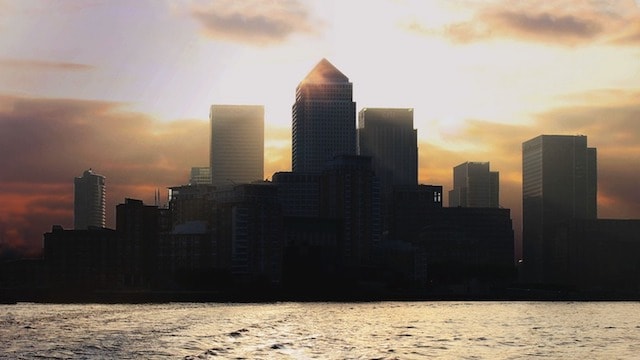Many share prices have been hit hard in the past year. And especially lately. Even FTSE 100 share prices such as those of HSBC (LSE: HSBA) haven’t escaped the market downturn. The bank’s shares are down 40% over the last 12 months and much of the damage was done before Covid-19.
Why is the share price falling?
Banks generally have been hit hard recently. Investors in Lloyds, like me, and in Standard Chartered will certainly be feeling the pain. That’s because banks do well in better economic conditions with higher interest rates. The move by countries towards negative interest rates isn’t an ideal situation for bank profitability.
Alongside the rights customers are being given in reaction to Covid-19 such as mortgage holidays, it’s not a great environment right now for banks. And we know share prices reflect optimism, which is massively lacking.
Should you invest £1,000 in HSBC right now?
When investing expert Mark Rogers has a stock tip, it can pay to listen. After all, the flagship Motley Fool Share Advisor newsletter he has run for nearly a decade has provided thousands of paying members with top stock recommendations from the UK and US markets. And right now, Mark thinks there are 6 standout stocks that investors should consider buying. Want to see if HSBC made the list?
HSBC does though have particular challenges that Lloyds, for example, does not. It’s caught firmly in the crossfire between the US and China. It’s presence and profits depend almost entirely on the latter, hence its decision to back China’s position in Hong Kong.
The ongoing feud between the Trump administration and China’s leadership, therefore, was weighing on the share price prior to the latest tensions.
As are some of the shenanigans at the top of the bloated bank. The bank fired John Flint and then waited too long to approve the new chief, Noel Quinn, an internal hire. Quinn has a plan to cut huge numbers of staff and shrink the bank. This could make the bank leaner and more profitable, but it’ll take time.
What to do about the falling share price?
Although I own the shares I don’t have much hope for them in the short term. HSBC’s management has generally not shown itself in a positive light with a lot of posturing and little action.
The share price, like other banks’, will be affected by investor feelings about the economy. As a cyclical business, HSBC will struggle during this current turbulent market. The share price is still falling, even as the FTSE 100 recovers.
Then thirdly, HSBC will always be vulnerable to tensions between China, which dominates Asia where it makes most of its profits, and the US and the West more generally.
For these reasons I’d be inclined to hold the shares if you own them already because there are long-term opportunities from structural growth of Asia. And opportunities for the bank to become a leaner organisation capable of improving margins and profits.
However, I wouldn’t be tempted to buy the shares if you don’t own them, despite the 40% share price fall over the last 12 months. There are better shares for growth, or with recovery potential, in the FTSE 100.








